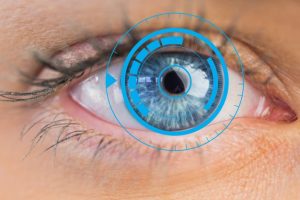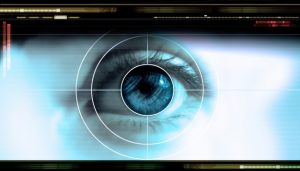What is LASIK surgery?
LASIK surgery is also known Laser in-situ keratomileusis eye surgery. It is an eye refractive surgery. It is done for the treatment of myopia (Nearsightedness), hyperopia( farsightedness) or astigmatism.
Before the advent of LASIK surgery, the only way to treat blurry vision was to bend refractive light rays with the help of spectacles or contact lenses. Though some people still opt for spectacles or contact lenses, some people find it very difficult to manage and carry glasses, contact lenses and solutions wherever they go. LASIK is an excellent option for such people. In this procedure, the cornea is reshaped for proper refraction of light rays with a laser. It corrects the vision and helps the patient to lead a carefree life without the tension of carrying glasses and contact lenses and solutions.

What are the different types of problems that can be treated with the help of LASIK?
LASIK surgery is performed when the patient can see blurry images. Images are formed at the back of the eye, on the retina. If there is a fault in the focus of the eye, then the images seen by the patient is blurry. The different types of problems in which the patient sees blurry images are:
- Farsightedness or hyperopia: In this condition, the patient can see the far objects clearly, but the images of objects lying near their eyes are blurry. When the cornea is flat, or the average length of the eyeball is short then light does not fall on the retina but at the back of the retina. This creates images that are blurry or distant. People who have hyperopia experience blurry vision while reading.
- Nearsightedness or myopia: In this condition, the patient can see objects lying near his eye clearly but the images of objects lying far away appear blurry in his eyes. This happens when the eyeball is longer than usual, or the cornea takes a sharp curve, and the light falls on the front portion of the retina instead of the retina. The people suffering from myopia can see the things close to their eyes properly but experience blurry vision while focusing on things lying far away.
- Astigmatism: People who are suffering from astigmatism experience overall blurry images. It happens when the cornea becomes flat or curves unevenly, it disturbs the focus of light, and the patient sees blurry images all the time.
What can we do if we have blurry vision?
Dr. Durocher, a Lebanon optometrist, suggests that if we have any kind of problem with our eyesight, then we should get our eyes checked at the earliest. Neglecting an eye problem can make it worse. An optometrist can check the measurements of the eyeball and suggest glasses for the refraction of the light and correction of the vision. If the patient is not interested in wearing glasses or contact lenses, then the optometrist can check the health of the eye to determine if the patient is eligible for LASIK surgery. The optometrist can then refer the patient to an eye surgeon or ophthalmologist for further treatment. Different eye surgeons specialize in various kinds of LASIK surgeries, and the type of surgery needed depends on the problem faced by the patient.
Who can go for LASIK surgery?
LASIK surgery is suitable for people with moderate refractive error and mild vision problems. It generally brings positive outcomes for healthy patients, but if a patient has any underlying health issue or problem in the eyes, then it might lead to complications after the surgery. Certain conditions might affect the success of the procedure, such as:
- Any kind of eye infections like herpes simplex or keratitis may lead to complications after the surgery.
- People with dry eye syndrome should not go for Lasik surgery as it might complicate their problem.
- People with an eye disease that slowly affect the vision should not go for LASIK surgeries.
- People with glaucoma should not go for LASIK surgeries as the surgical procedure can increase the intraocular pressure.
- If a patient has an age-related vision problem, then LASIK surgery may not be helpful for him.
- People with medical conditions like diabetes or any other disease that affect the immune system like HIV that make the healing process slow should not opt for LASIK.
- People who play contact sports which involves the risk of being hit in the eye should not consider LASIK.
Though people heal quickly after the surgery and experience improved vision, it is better not to neglect post-surgery care and visit the doctor regularly for six months to one year to avoid post-surgery complications.
References:
- https://en.m.wikipedia.org/wiki/LASIK
- https://m.wikihow.com/Know-if-Lasik-Eye-Surgery-Is-for-You
- http://opmt.com/education/lasik/


